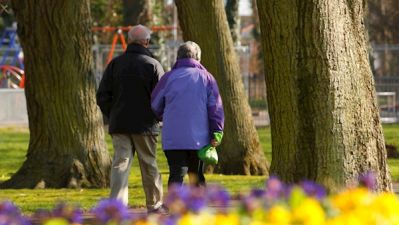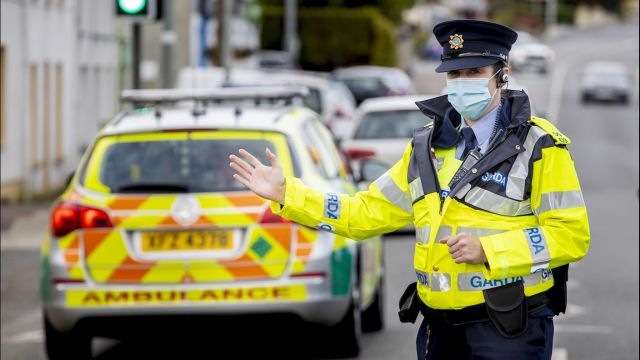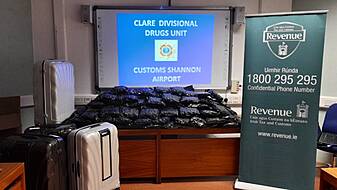Additional reporting by Press Association
Level 5 is now in place nationwide in an effort to stop the spread of Covid-19.
It comes as the national 14-day incidence rate per 100,000 is now 291 - while Cavan's is in excess of 1,000.
The restrictions will be in place for six weeks - with people not allowed to travel five kilometres from their home apart from specific reasons.
From today, Gardaí will introduce more checkpoints to aid compliance with the new measures.
Training in the Garda College in Templemore will also stop so recruits can be released to help with frontline duties. They will be released on November 2nd, allowing up to 260 extra members to be drafted in for the increased number of checkpoints and to provide community patrols.
The extension of Operation Fanacht will see Gardaí continue their policy of policing by consent with enforcement only being used as a last resort.
Gardaí say that at any one time over the next six weeks they will have over 2,500 officers on duty
They will also available for vulnerable people in the community who may need extra assistance during the increased restrictions.
Minister for Health Stephen Donnelly has defended the move to Level 5 saying Ireland has acted first in Europe every time, with the Republic becoming the first EU country to return to a full lockdown.
Fines
Under the new measures, all non-essential retail is closed and pubs, restaurants and cafes are only permitted to offer takeaway or delivery services. However, schools, creches and construction sites will remain open.
Household visits will not be allowed under Level 5 restrictions, with people asked to stay at home, allowing them to exercise within 5km of their home. New penalties will be introduced for breaching the measures.
These include fines of up to €1,000 and/or up to one month in prison for someone who hosts a party.
People attending a house party or attempting to attend one could also face fines of up to 1,000 euro and/or one month in prison.
On the spot fines of up to €500 euro could be imposed if people do not wear a mask, among other offences.
The legislation does not give gardaí the power to enter a home without a warrant, but they could stand at the entrance and look for the occupier’s name.
They could also turn someone around if they believe they are attending an event, with the new laws expected to come into effect within days.
The Minister for Justice Helen McEntee said gardaí will only use the new powers as a last resort.
Lockdown worries
NUI Galway Epidemiologist, Dr Akke Vellinga, is questioning the need for such strict lockdown measures.
"I would be worried about Level 5 restrictions because I would like to see lockdown based on the number of hospital admissions or the number of deaths and to restrict people so much for a second time, I'm very worried about all the other knock-on effects."
Earlier in the week, members of both the Government and the National Public Health Emergency Team (Nphet) stressed that they could not guarantee Ireland would not face another lockdown situation in the future, but action now would allow the country to celebrate Christmas in a "meaningful way" according to Taoiseach Micheál Martin.
This comes as a study from the University of Limerick (UL) found that more mental health supports are needed for children and teenagers to deal with Covid-19 lockdowns.
The research was carried out between April 10th and May 22nd.

Lead on the project, Dr Jennifer McMahon, says their findings also show increased levels of worry and unhappiness but reduced levels of restlessness.
"That was a surprising finding in the research, that adolescents did report a reduction in their own restlessness and attention difficulties. Perhaps it's down to adolescents being able to adapt to the routine of lockdown life, so I think that was a surprising finding but it was also mirrored in our sister study in the UK."
Although it is positive that younger groups appear to adapt better to lockdown situations, former government minister Jim McDaid says restrictions should not be imposed on people under the age of 35.
"The younger cohort should be excluded. The lockdown shouldn't apply to these people- they are fit and healthy. All of our resourced should be focused on people who are vulnerable," Dr McDaid said.







